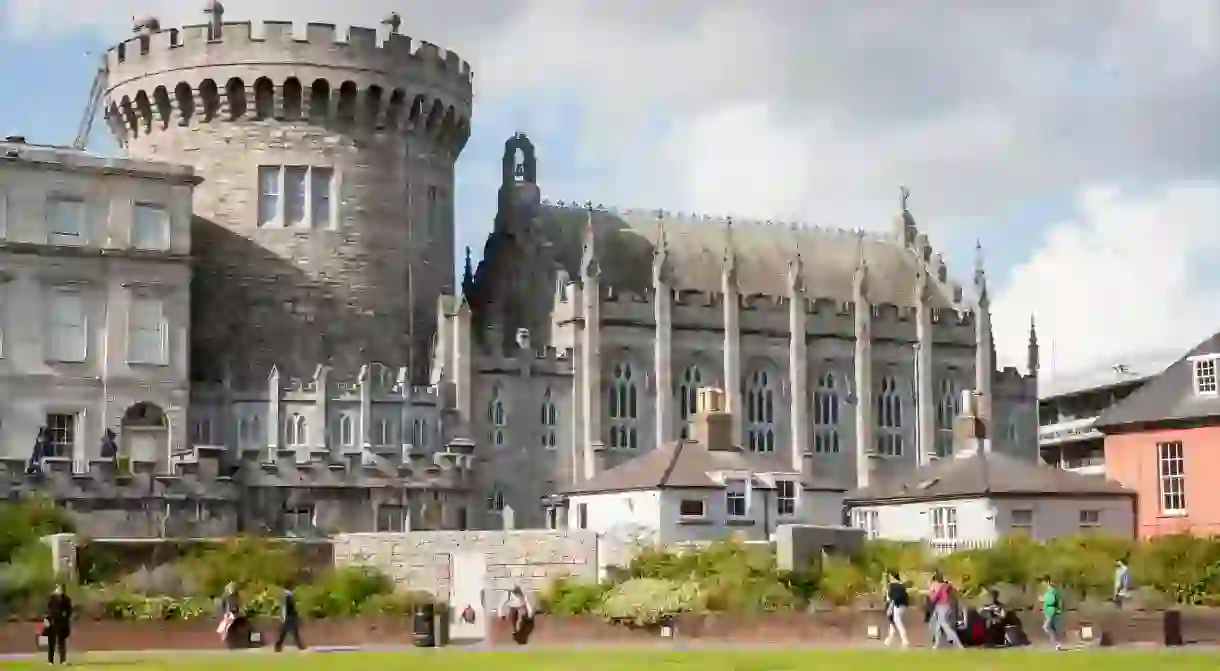The Best Outdoor Activities in and Around Dublin

Dublin is a city that begs to be explored. Be it for history, culture, communion or cheer, you can find something on every street corner, so head out and take it all in – don’t just spend your holiday in Temple Bar.
The temptations of a trip to Dublin are obvious. At some point, you’ll want a pint of Guinness. At another, you’ll want whiskey (not ‘whisky’ – never make that mistake with an Irishman). You’ll want to catch a game of hurling, see a fiddle player and buy something with a shamrock motif. And who can blame you? But there is far, far more to the Irish capital than stag-dos and shillelaghs; beyond the tourist traps of Temple Bar, there is a city that has everything you could ever want. Get out of the pubs – at least for a little while – and do Dublin properly.
The Ha’penny Bridge
Bridge

Dollymount Strand
Natural Feature

You’re not likely to get the sweltering weather of St Tropez when heading to Dollymount Strand, but there is no better place to take in the astonishing natural beauty surrounding the capital. The walk to the beach is breathtaking enough: a sweeping promenade that takes you along Bull Wall, with the majesty of Dublin Bay in front of you, and the ocean air in your lungs. But once you arrive, you’ll find yourself captivated by the flat, nearly infinite plains tracing far off into the distance, barracked by undisturbed sand dunes. You’ll feel like you’re a million miles from the city centre, or any city centre. And if you’re lucky, you might see an otter.
The National Botanic Gardens
Botanical Garden

For the green-thumbed traveller, or for anyone who just appreciates a good garden, the National Botanic Gardens in the northern neighbourhood of Glasnevin is a perfect place to spend an afternoon. Founded in 1795, after being sold to the Irish Parliament by the poet Thomas Tickell, the gardens are one of Dublin’s most popular attractions, as well as the site of extensive horticultural research. The gardens even serve as a safe haven for over 300 species of plants that are endangered in the wild, and six that have become extinct in the wild altogether, so you can guarantee that you’ll be marvelling at plants that you may not ever see again. Just don’t pull on their leaves, no good can come of it.
Garden of Remembrance
Park

As one of Ireland’s most sombre and hallowed spaces, the Garden of Remembrance, tucked away in Parnell Square, is as necessary a visit for locals as it is for tourists. Dedicated to the struggle for Irish freedom that so beset the nation until its eventual liberation from the British, the Garden of Remembrance is tranquil and well manicured, but unflinching in its use of symbolism. Statues and plaques show visions of battles past, as poems commemorate the sacrifice of Irish revolutionaries like James Connolly, Maud Gonne and Constance Markievicz. Without their agitation and faith in the cause of a free and equal Ireland, Dublin would not be the city it is today.
Dublin Castle
Building, Historical Landmark

Phoenix Park
Park, Zoo













